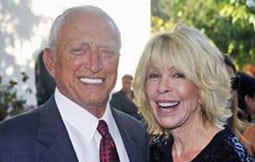In the course of writing about the importance of legacy, and because it is apple (and Apple) season, allow me to share with you some additional points about the influence an inspiring leader can bequeath to his or her supporters.
With regard to Steve Jobs, a singular personality of charisma, showmanship, excitement (not for nothing did he describe Apple's devices as “insanely great”) and aesthetic brilliance, his legacy is clear: Create excellent products, period.
His successor, Tim Cook, need not bother himself with the answer to the question, “What would Steve do?” The query is itself not worth considering because, one, Jobs was explicit that that question should not confound his colleagues; and two, while it is futile to think about where he would have placed this button on this or that iPhone, or whether he would have even endorsed the look and feel of items only now being assembled and shipped to consumers worldwide, the people of Apple will forever know how to design goods of unmistakable artistry and engineering genius.
The real legacy of a leader is, instead, a matter of grace and comportment – how, in the midst of private travails and physical pain, that individual speaks with the serenity of a pastor, the calmness of a battlefield commander, and the dignity of a proud citizen of his or her community.
Nowhere is this example more incredible, and nowhere (sadly) is this story so absent from the most frequently cited remarks of one man, than in Steve Jobs's appearance before the Cupertino, California, City Council on June 7, 2011.
There he introduces his plans for Apple's new headquarters, the so-called “spaceship,” which will be a 2.8-million-square-feet glass circle that, in Jobs's words, has “. . . a gorgeous courtyard in the middle, and a lot more. It's a circle, so it's curved all the way around. This is not the cheapest way to build something.”
This presentation, unlike Jobs's famed commencement address at Stanford University, or any number of his theatrical performances on behalf of the debut of some “insanely great” products, is his most poignant and unforgettable display of duty.
It is the summation of his legacy.
With less than four months left to live, his wan body reduced to almost skeletal proportions, covered by the drapery of his loose-fitting “uniform” of black turtleneck, Levi's 501 jeans, New Balance sneakers and rimless glasses – Jobs speaks fluently and nostalgically of his boyhood, and he enthuses about a future we now know he would never see.
From expressing his memories of the Santa Clara Valley, where apricot orchards once decorated the surrounding greenery with a yellow-orange hue, to his precocious decision to call William “Bill” Redington Hewlett (of Hewlett Packard) and ask for some spare parts to build a frequency counter (which resulted in Hewlett giving the teenager summer work), Jobs tells the council members – he tells us and generations to come – how to lead, with affection to our mentors and grand ambitions for our own pursuits.
That is the hallmark of a leader. This is how a great visionary secures his or her legacy.
In sickness, and in health, a leader describes better days ahead – and moves us forward to “broad, sunlit uplands.”
I know of another such leader. Indeed, I am the wife of that man, who is alive in my thoughts and active in the foundation that will forever bear his name: Dr. A. Richard Grossman.
A Foundation for Greatness: The Preservation and Enhancement of a Leader's Legacy
The lesson Steve Jobs shows us is the same one my husband's patients, friends, nurses and fellow surgeons perpetuate: Resolution and charity.
And, like Jobs and his refusal to passively succumb to cancer, Richard's quiet defiance against renal failure – his focus neither blurred nor blinded by the forces arrayed against him – is why, in part, his legacy is so transcendent.
A healer and innovator to the end, he is his own man.
I applaud Steve Jobs, but I love Richard Grossman.
For, it is that love (for his family, including his many “sons” and “daughters” who are the beneficiaries of his philanthropy), that immortalizes a leader.
Both men are with us still.
—
A Board Member of the Dr. Richard Grossman Community Foundation, Elizabeth Rice Grossman retired from a 35-year career on Wall Street, the last eight as a Managing Director of Soros Fund Management in charge of worldwide trading. While living in New York, she served on the Board of the Ronald McDonald House, The Family Academy and was a Trustee of the Public Theater. Upon retirement, she moved home to San Francisco, and became active in her Community. She is a member of the Board of Trustees of the Honolulu Museum of Art and Chairs the Investment Committee. She also serves on the Board of the Hawaii Community Foundation as well as the Hawaiian Human Society.

